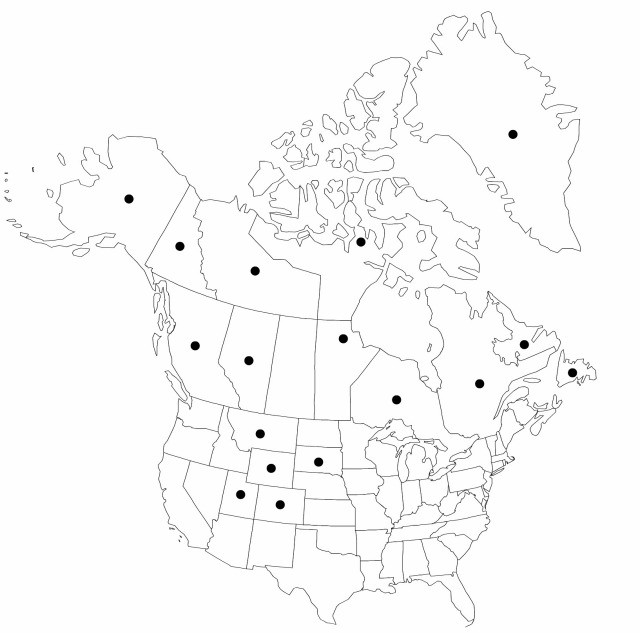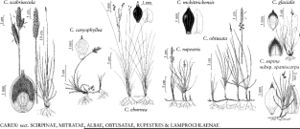Carex rupestris
Fl. Pedem. 2: 264. 1785.
Rhizomes brown or black, scaly. Culms 4–20 cm. Leaf blades channeled, tips soon becoming brown and dry, 2–12 cm × 1–3 mm. Spike with 3–15 pistillate flowers, 8–20 × 1.5–4 mm. Pistillate scales brown, margins hyaline, midvein paler, circular-ovate 2.5–4 × 1.4–2.6 mm, apex obtuse, often concealing perigynia. Staminate scales brown, margins hyaline, midvein paler, oblong-lanceolate to obovate, 2.5–3.5 × 1.4–2 mm, apex acute or obtuse. Perigynia 2.5–4 × 1–2 mm. Achenes oblong-obovoid, 2.2–2.5 × 1.5 mm. 2n = 52.
Phenology: Fruiting late spring–summer.
Habitat: Dry to mesic heaths, meadows, rock outcrops, talus slopes
Elevation: 0–2000 m
Distribution

Greenland, Alta., B.C., Man., Nfld. and Labr., N.W.T., Ont., Que., Yukon, Alaska, Colo., Mont., S.Dak., Utah, Wyo., Eurasia.
Discussion
Carex rupestris can be confused with C. obtusata if collected without the rhizomes. They may be distinguished by the presence of reddish dots on the sheath fronts of the culm leaves in C. obtusata and the absence of dots in C. rupestris.
Selected References
None.
